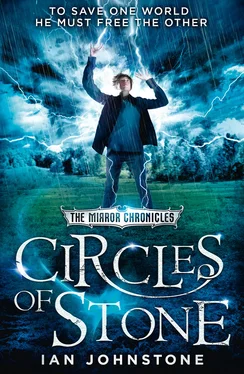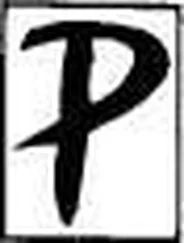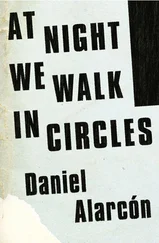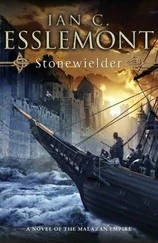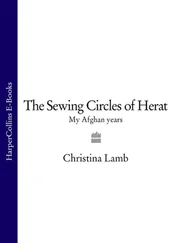He swallowed and drew himself back to the present. He walked around the chair and sat down.
“So, why did you bring me here?”
Paiscion glanced across at him. “It’s what she would have done,” he said, taking off his glasses and cleaning them on his robe. “Merimaat said this place helped her to see more clearly.”
“See what?”
The Magruman placed the spectacles back on his nose. “To see what was important, and to remind herself that those important things –” he nodded towards the Valley of Outs – “those things we most treasure – that they come at a price. They always come at a price.” He looked back at the Barrens.
Sylas gazed out over the blanket of grey. He could sense where this conversation was going. “You’re not just talking about the valley and the Barrens, are you?” he said. “You’re talking about what was decided in the Say-So. You’re saying that my mum comes at a price too.”
The Magruman inclined his head. “Perhaps my point is rather obvious, Sylas, but it is important.” He turned back to the wastes. “On a clearer day, you know, even this view improves. When the light is just right, when the Dirgheon casts no shadow, you can see the Temple of Isia, glowing in all the grimness.”
“You mean, the place I’m supposed to go,” said Sylas irritably. “The place I have to go instead of finding my mother.”
“Quite a price to pay, you are thinking, aren’t you?” asked Paiscion.
Sylas nodded.
“Well it is a sacrifice – that is for certain – but it may not be quite as heavy a price as you may think. Did you see it on your way through the city? The temple?”
“Yes,” said Sylas trying to lose the edge in his voice. “A white tower – it was strange – sloping sides and two platforms at the top.”
“Strange, and beautiful,” said the Magruman. “It’s modelled on the Djed Pillar, an ancient symbol of stability. Only right, because Isia is perhaps the only stable thing in this world of ours. Many have dreamed of going inside, of meeting Isia. But she rarely shows herself and even then, only on the platform at the top of the temple.”
“So … who is she?” asked Sylas, leaning forward, his elbows on his knees.
“Well, now we’re getting to it!” said Paiscion with a smile. “No one really knows where she hails from, but she’s been around at least as long as Thoth himself. They say she’s young and beautiful in appearance – and kind, unwaveringly kind – Thoth’s nemesis, if you like. Although she never takes sides – she doesn’t involve herself in the ugliness of the world.”
Sylas frowned. “If she doesn’t get involved, how can she be so good? Why’s she so important?”
“She may not interfere, but that’s not to say that she isn’t at the centre of our lives. There’s something that has always drawn people to Isia – something deeper and more important than our daily lives, than our skirmishes and battles, even the Undoing.”
“So she’s a leader or … what, some kind of … god?”
Paiscion shrugged. “Some people believe that, yes. She certainly has unique insights into the human soul. Much has been made of her teachings, her predictions, her pronouncements. I daresay you will find many of them in the Samarok. She has extraordinary vision.”
“So she sees … like a Scryer sees?”
Paiscion shook his head. “Like a thousand Scryers who never sleep. They say she sees further than the four horizons and deeper than thought or feeling.”
“And you think she knows about the Glimmer Myth?”
“Well, you read the song in that book of yours,” said Paiscion, nodding to Sylas’s bag. “She knows about the Glimmer Myth, certainly. And about your place in it? Quite probably.”
“And you think she’ll speak to me?”
Paiscion laughed. “Sylas, you’re a boy from another world, one half of a reunited soul and the fulfilment of the Glimmer Myth. She won’t be able to resist you.”
“Twelve priests bound by duty to their king, and to each of them, three indentured Magrumen. This is all it took to bring the world to ruin.”
FILIMAYA’S EYES SPARKLED LIKE jewels of the forest.
“Beautiful, isn’t it?” she said.
Naeo climbed the bank and stepped up to Filimaya’s side. Below, scores of little streams and rivulets wove their way across the forest floor, twisting and turning, rolling and leaping. At the base of the slope they joined the still waters of the lake amidst a great muddle of bubbles and spray, which sent a pleasant mist back up the bank and laced everything in a glistening dew.
“This is what we tried to recreate at the Meander Mill,” said Filimaya. “Did you hear of our Water Gardens?”
Naeo shook her head. They sounded familiar, but she had no idea why.
“Ah well,” said Filimaya, “they’re gone now, like so much else. And so this is it: our last retreat, our patch of things.”
“There are still plenty of us in the slums,” said Naeo, picking up a stick and poking at the bank. “And in the Dirgheon.”
“Yes, there are, but that’s no way to live,” said Filimaya with a sigh. “It sometimes feels as though we are clinging on to this world, doesn’t it? As if we might lose our place in it altogether.”
“Well, that’s just what he wants, isn’t it?” muttered Naeo, swiping the tip of the stick into the nearest stream.
“Yes. Indeed,” said Filimaya wistfully.
She stepped over the torrent and began making her way across the labyrinth of rivulets. After a few steps she stopped and looked back at Naeo. “But that’s part of what makes Sylas so exciting, so hopeful, isn’t it? Like the Bringers before him, he brings us a promise of a world without Thoth, without the Undoing, without all the suffering our people have endured.”
Naeo stepped out to follow. She sensed where this conversation was heading. “I suppose, but that still doesn’t make me want to go to his world.”
“Really? You’re not the least bit curious? A world without Thoth, where you’re entirely free? Like everyone else?”
Naeo shrugged.
“A place without Essenfayle or the Three Ways, where summer is winter and night is day? Where people drive carriages without horses and light torches without flames; where they fly—”
“No! I’m not interested!” snapped Naeo, drawing up sharply. “I don’t care about any of that! My father is still here ! And – and worse than that – he’s in the Dirgheon, probably half dead or … or worse.” She paused, her heart thumping and her eyes burning. “And it’s my fault!”
It was a huge relief to say it. She had thought about little else since her escape.
It was her fault. Her fault .
The memories came in flashes: stark and clear. There he was, chained to a stone table, covered in sweat and blood, arching with pain whenever his tormentor drew near, screaming until his voice trailed away. She remembered the few quiet moments, those precious moments of reprieve when Thoth would write, or take up his cello, or even leave the room, when her father would turn to her with those large green eyes.
How she loved those eyes.
And in that generous gaze she had felt him saying it would all be all right, felt his strength, his warmth. But she had seen the tears trickling on to the stone. And she had known their meaning. She had seen the despair in those tears.
And what had she done? She had left him behind, she had taken flight, rising on the magical winds above the pyramid. She had seen him there, on the pinnacle. Her beautiful, strong father, raising his bloodied hand to wave them away. And above him, that murderous figure in crimson robes, that empty, merciless face.
Читать дальше
